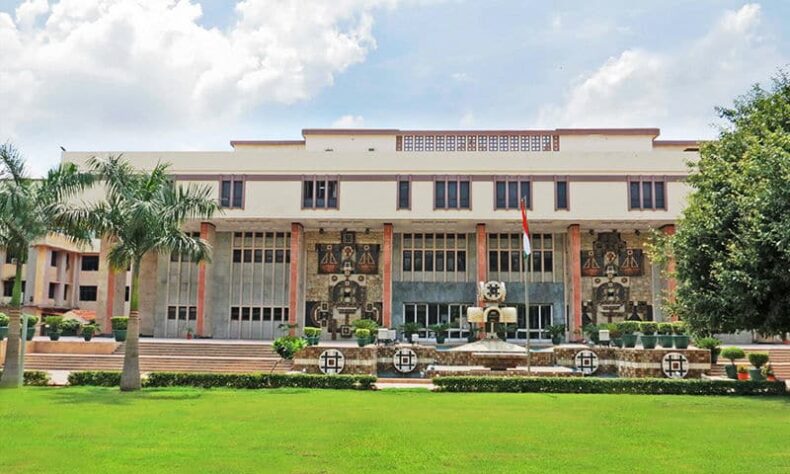Delhi HC judge noted that the lawyer sought to restrain the landlord from interfering with the lease as well as to keep him from paying a monthly rent of Rs 1.60 lakh to the lawyer.
A contempt petition was being heard by the court by the owners of the property being used for commercial purposes by the lawyer. A paying guest had been staying there.

After weighing the evidence, the Delhi High Court sent a lawyer to jail for six months and fined him ₹2000 for contempt of court [Parnita Kapoor v Arvind Malik].
A Delhi High Court found a lawyer guilty of contempt after finding him guilty of failing to pay use and occupation charges to his landlords in compliance with an order of another high court bench. Court records indicate that the landlords had informed the court there was a payment due of approximately Rs 32 lakh.
Observing the lawyer’s apology to the court on March 16, a single-judge bench headed by Justice Manmeet Pritam Singh Arora concluded that it was merely a “lip service” and not a true apology for his wilful default and non-compliance.
In his decision, Justice Manmeet Pritam Singh Arora stated that the lawyer abused the legal process and disregarded the Court’s orders.

The presiding judge stated that in a case such as this, the court must refrain from demonstrating any form of leniency, as it may be perceived as a display of weakness.
The Court has expressed concern that failure to hold the lawyer accountable for his willful default and breach of his commitments made to the Court could embolden him to misuse the legal process in the future, thereby causing harm to other citizens. The Court emphasizes the need to maintain the integrity of the judicial system by taking appropriate action against such violations.
A court order as well as an undertaking on his behalf failed to prompt the lawyer to pay outstanding dues amounting to 32 lakhs to the petitioners.
He had committed to repaying the entire outstanding amount in three installments within two months and vacating the property by May 2021 in his undertaking.
His failure to pay the amount and delay in leaving the property until December 2021 contributed to his inability to leave.
On the grounds of his young age, the lawyer offered an unconditional apology during the contempt proceedings and requested leniency in punishments.
This apology has been rejected by Justice Arora because he believes that it is only lip service aimed at avoiding consequences.
Accordingly, the court finds the Respondent herein has not offered an unconditional apology and that it is simply paying lip service and using the apology as a ploy to avoid the consequences of the Respondent’s wilful default and non-compliance.”

Further, the Court stated that if the use and occupation charges hadn’t been paid, an ordinary citizen would have vacated the premises immediately.
Despite this, the respondent has been using and occupying the subject property until 15-12-2021 and as has been documented, he was using it as paying guest accommodation for income.
The single judge presiding over the case noted that the lawyer had been exploiting his legal knowledge to take advantage of procedural safeguards and cause harm to the petitioner by denying him possession of the property and use and occupation charges. The Court finds such actions to be a violation of the fundamental principles of justice and emphasizes the need for lawyers to uphold ethical standards in their practice.
In this case, the Respondent used the legal process to restrain the landlord from interfering with his enjoyment of the subject property, as well as to deny the landlord some Rs. 1,60,000 per month in rent.”
Also, the court ordered that the order be forwarded to the Delhi Bar Council, which will take appropriate action against the lawyer. Additionally, the lawyer was warned that aggravated contempt of court would apply if he committed contempt of court again.
As for the respondent, he appeared along with attorney Chandan Kumar Mandal and was represented by advocate Rajan Tyagi.













